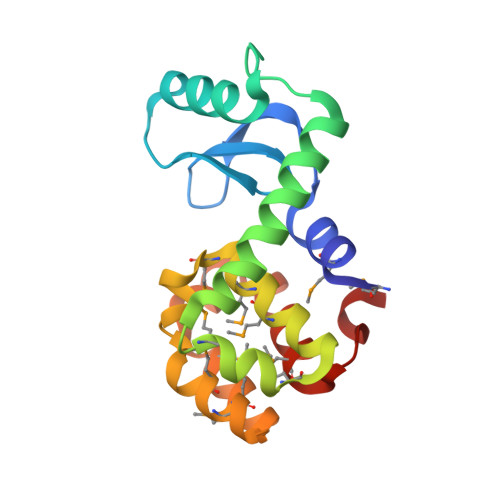Substitution with selenomethionine can enhance the stability of methionine-rich proteins.
Gassner, N.C., Baase, W.A., Hausrath, A.C., Matthews, B.W.(1999) J Mol Biol 294: 17-20
- PubMed: 10556025
- DOI: https://doi.org/10.1006/jmbi.1999.3220
- Primary Citation of Related Structures:
1CX6 - PubMed Abstract:
The availability of a series of phage T4 lysozymes with up to 14 methionine residues incorporated within the protein has made it possible to systematically compare the effect on protein stability of selenomethionine relative to methionine. Wild-type lysozyme contains two fully buried methionine residues plus three more on the surface. The substitution of these methionine residues with selenomethionine slightly stabilizes the protein. As more and more methionine residues are substituted into the protein, there is a progressive loss of stability. This is, however, increasingly offset in the selenomethionine variants, ultimately resulting in a differential increase in melting temperature of about 7 degrees C. This increase, corresponding to about 0.25 kcal/mol per substitution, is in reasonable agreement with the difference in the solvent transfer free energy between the two amino acids.
Organizational Affiliation:
Institute of Molecular Biology, Howard Hughes Medical Institute, Department of Physics, 1229 University of Oregon, Eugene, OR, 97403-1229, USA.

















